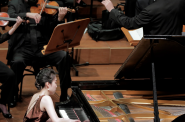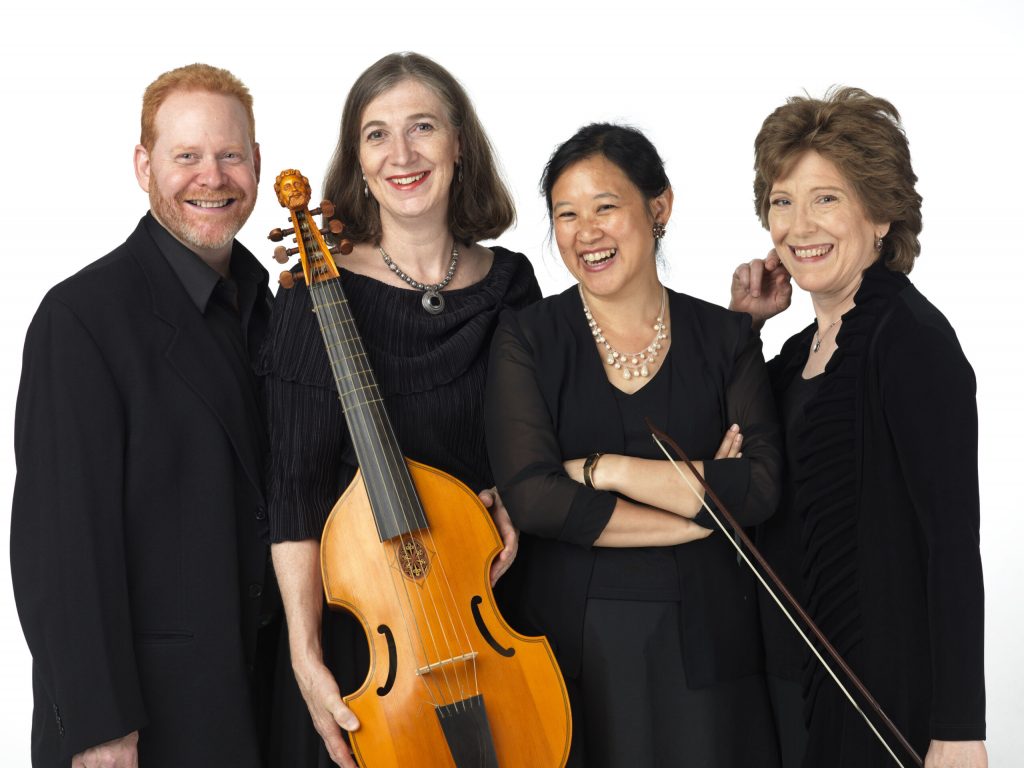The Golden Age of Venice
Early Music Now's concert Saturday features a premier viol consort, Parthenia, performing works of Renaissance Venice.
Early Music Now opens its 35th anniversary season on Saturday, November 13, presenting New York’s premier viol consort, Parthenia, with guest soprano Sherezade Panthaki. The evening’s program, “Italia Mia: Music of Renaissance Venice,” will transport the audience to 16th century Venice, where a fertile environment for the arts supported highly-skilled performers, composers, instrument builders and music publishers.
The viol (“viola da gamba” in Italian) is a fretted string instrument that likely originated as the “bowed guitar” in 15th century Spain. Viols generally have six strings and are tuned in intervals of a fourth, except for the major third that separates the two middle strings. Players hold the instrument against or between their knees and play with a bow held with an underhand grip. Parthenia’s members, Rosamund Morley, Lawrence Lipnik, Beverly Au, and Lisa Terry, play treble, tenor, and bass viols, the three main members of the viol family.
Viola da gamba music flourished in 16th century Italy, noted Parthenia performer and program director Rosamund Morley. A confluence of factors nurtured the popularity of the viol: the presence in Venice of many wealthy patrons of the arts, the community of foreigners who shared musical innovation from their homelands, and the growth of confraternities called Scoule Grande that employed artists and musicians. Venice also was the site of Europe’s most advanced music publishers. That industry attracted composers from throughout the continent who came to supervise the publication of their work. Such trips by composers helped to spread Venetian musical styles everywhere in Europe.
Saturday evening’s performance includes secular and sacred canzonas, dances, madrigals, and motets composed for solo and ensemble viol and voice, including pieces written by well-known composers such as Andrea and Giovanni Gabrielli and Claudio Monteverdi as well as others who, according to Morley, deserve greater recognition. Soprano Panthaki will join in the performance of six pieces, including Italia Mia, which closes the program. Morley describes the text, written by Francesco Petrarca (Petrarch) two centuries before Philippe Verdelot composed the setting, as “an exquisite madrigal… begging for peace and harmony.”
Saturday’s concert begins at 5 p.m. at St. Paul’s Episcopal Church, 914 E. Knapp St., an intimate venue that supports Parthenia’s performance with historical accuracy and no amplification. Tickets may be purchased at the door, subject to availability, at the EMN website, and by phone at 414-225-3113. Online and phone sales end at noon Friday. EMN requires proof of vaccination against COVID-19, or proof of a negative test within 72 hours, accompanied by a valid ID, before entering the church. In addition, all patrons, staff, and volunteers must wear a mask fully covering nose and mouth throughout the performance space.
The next EMN event, on December 14, features a group of 28 musicians led by the vocalists and instrumentalists of The Newberry Consort. The performance will showcase the Christmas traditions of 17th century Mexico.
Preview
-
PianoArts Festival Features Rising Stars
 May 28th, 2024 by Michael Barndt
May 28th, 2024 by Michael Barndt
-
Four Nations Ensemble Goes For Baroque
 May 13th, 2024 by Michael Barndt
May 13th, 2024 by Michael Barndt
-
Mozart on Prospect Avenue
 May 9th, 2024 by Martha Brown
May 9th, 2024 by Martha Brown





















